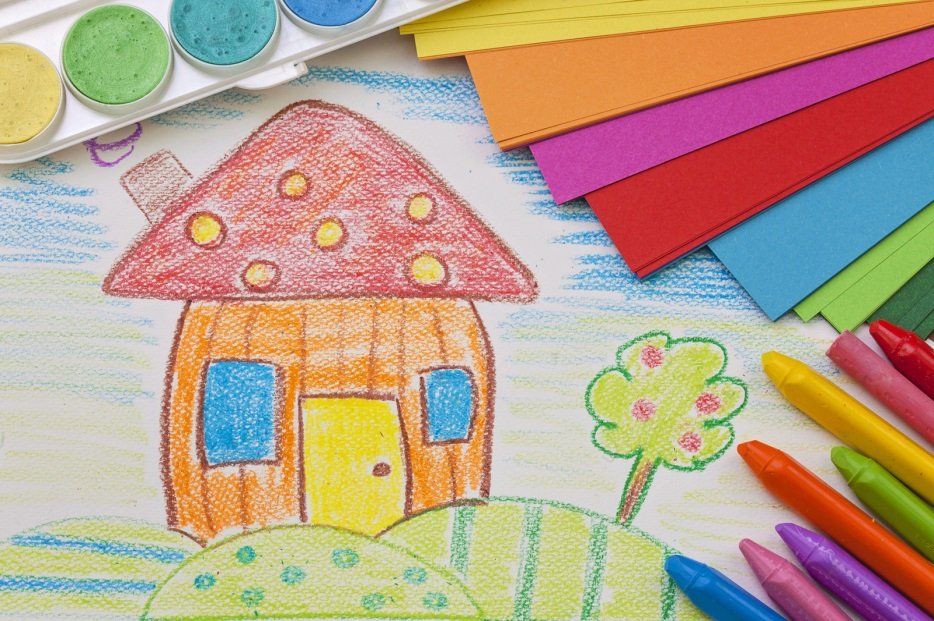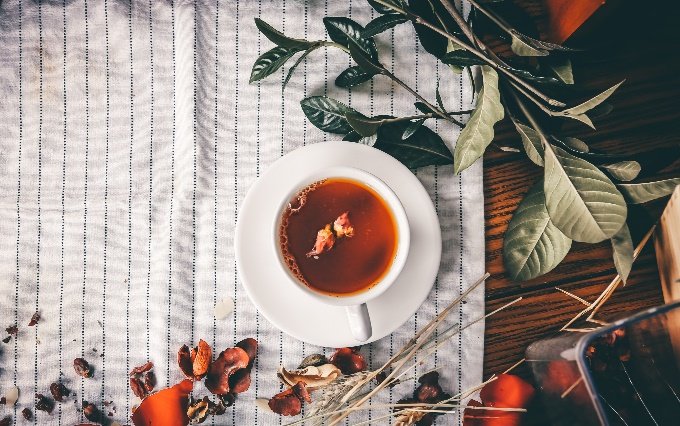
by Belinda Ollewagen | Feb 11, 2019 | instant tap, water cooler, water dispenser
The weather is still pretty grim and as much as frequent visits to your office’s instant taps or water cooler might help you stay hydrated, it can be a little challenging to keep drinking that much liquid during the cold winter months; so another option is to up your intake of water-rich fruit and vegetables!
Not only does certain produce help with water intake, but fruit and vegetables are naturally low in fat and calories, and they’re an important source of many nutrients including potassium, fiber, folic acid, Vitamin A and Vitamin C. These nutrients help our bodies maintain healthy blood pressure, reduce blood cholesterol levels, regulate our bowel movements, aid healthy fetal development in women, and protect against various infections – the benefits are endless. For all this, in addition to aiding hydration, it’s easy to see why we should include more of this food type in our diets.
So, if you’re struggling to drink those eight glasses of water each day from the water cooler, consider eating more of the following – in order of highest water content:
FRUIT
Watermelon holds the highest percentage of water at 92%, followed by Strawberries 92%, Grapefruit 91%, Cantaloupe 90%, Peach 88%, Raspberries 87%, Pineapple 87%, Cranberries 87%, Orange 87%, Apricot 86%, Blueberries 85%, Plum 85%, Pear 84%, Apple 84%, Cherries 81%, Grapes 81% and Banana 74%.
VEGETABLES
Cucumber holds the highest percentage of water at 96%, Lettuce (iceberg) 96%, Zucchini 95%, Celery 95%, Radish 95%, Tomato (red) 94%, Cabbage (green) 93%, Tomato (green) 93%, Cabbage (red) 92%, Cauliflower 92%, Peppers (sweet) 92%, Spinach 92%, Eggplant 92%, Broccoli 91%, Carrots 87%, Peas (green) 79% and Potato (white) 79%.
Whether it’s a fruit salad you bring along to the office, or perhaps a home-made soup, be sure to include more of these in your diet and then you won’t need to visit the water cooler dispenser quite that often in the chilly months.

by Belinda Ollewagen | Feb 11, 2019 | water cooler
On Thursday it’s Valentine’s Day and if you’ve had your eye on someone special at the office, but haven’t yet taken that all-important 1st step, then use these fun Valentine’s facts to plant the seed when next you’re standing around the water cooler having a chat.
- We all know Valentine’s Day is named after the Christian martyr, St Valentine who lived in the 5th century, but did you know that when the Roman army banned its soldiers from getting married, it was Valentine that would perform the marriages in secret?
- In 1797 printers had begun to produce cards with verses and sketches, called ‘mechanical valentines’.
- In the US, mass-produced Valentines first made their appearance around 1847 – the idea came courtesy of Esther Howland who had received an English Valentine from an associate of her father.
- In the early 19th century Fancy Valentines were made with real lace and ribbons and in 1835, 60,000 Valentine cards were sent by post in Britain.
- Today on average one billion cards are sent worldwide – around 145 million in the US and around 25 million in the UK.
- It was only in the 20th century that flowers and chocolates were included along with the cards.
- And for some, Valentine’s Day is the perfect day to propose – apparently around 10% of all marriage proposals happen on the 14th!
- But be warned, in the US more than 50% of women said they would break up with a partner who failed to remember Valentine’s Day and strangely enough, divorce filings are said to rise by 40% around the same time.
Okay, so maybe don’t mention the last two facts, you don’t want to scare off your prey (um, I mean crush) – after all, your harmless Valentine’s banter is supposed to help you get a foot in the door, not the other way around. So get your facts straight and head for the water cooler – they’re bound to need a drink or two at some point during the day!
Source: London Loves Business (https://londonlovesbusiness.com/14-valentines-day-facts-that-even-cynics-will-love/)

by Fern Shaw | Feb 11, 2019 | Water Boilers, water cooler
We often, somewhat mistakenly, assume that keeping hydrated during winter is less important than in summer. As it turns out, the opposite is true.
In winter, in an effort to keep warm, we rely on using heaters, hairdryers and hats which quite literally suck the moisture and oils right out of our bodies, skin and hair. When we’re outside, low humidity and gusty winds don’t help much either.
The good news though is that there are a number of easy hydration options available to keep you smooth skinned, glossy haired and properly hydrated internally too:
Wear layers
Trapping small pockets of air between layers is better than wearing one big chunky coat. A wool or fleece layer is a good idea, as it will be soft and lightweight, and warm air is more easily trapped in the fibres. Fabrics with a piled, terry or textured finish will also be effective at trapping air.
Exercise and keep hydrated!
The urge to hibernate when it is cold is understandable, without the sunshine outside enabling us to soak up Vitamin D; hibernation is a completely natural reaction. That’s why it’s especially important to keep active wherever you can, whether that involves brisk walks (weather permitting) and other alternate forms of exercise: yoga is a good example – it doesn’t have to be a gym.
Because you also need to keep drinking water when the temperatures dip, try to develop a routine at work where you sip throughout the day. One option whether at home or at work, is to use a smaller glass or water bottle. It may mean more trips to the water cooler, but if you’re walking more, that’s being active and when it’s colder, every step counts.
Body scrubs and oils
Frigid temperatures and dry indoor heat cause water to evaporate from your skin because there’s more moisture in it than in the air. Bundling up doesn’t help matters – all those layers keep skin from breathing. Fight back with a one-two punch of body scrub and moisturising lotion or oil. Once a week, exfoliate with a body scrub to help slough off dead cells that make skin look dull. You’ll also find that giving your skin a brisk scrub will warm you right up too. When skin is freshly exfoliated, lotion and oil are better absorbed. To maintain hydration, smooth on the lotion daily after a shower.*
‘Eat’ your water
Fruit and veggies are packed with water, that high water content adds volume and keeps you satisfied without the calories. Soups are also a great way to sneak in some extra water. At AquAid we offer a range of hot and cold water coolers and water boilers which allow you to make your favourite hot water drink while at work or at home.
Maintain a good drinking water habit
Drinking enough water, as boring as it sounds, is still the simplest route to maintaining good ‘external’ physical health. We need to be well hydrated in order to maintain supple skin and unfrizzed hair.
 Being fussy can help
Being fussy can help
A lot of us just don’t like drinking water, period. Try adopting a different approach. Try drinking your water at room temperature. If you’re into branded gear (this isn’t just a children’s domain), then use your favourite cartoon character branded water bottle to drink from if it makes your happy. Figure out what appeals to you. And since your ability to recognise your thirst worsens as you age, today, early this New Year is a good a time as any to start to begin a ‘maintaining good hydration’ habit.
*updated from an 8 Jan 2015 blog

by Belinda Ollewagen | Feb 9, 2019 | water cooler
It’s cold and grey outside which is not always conducive to drinking water and staying properly hydrated, but it’s essential that we encourage our children to take frequent trips to the water cooler during their school day. We all want them to be happy and healthy, and ensuring that includes paying particular attention to their water intake throughout the year – even in the colder months.
Illness aside, while the daily intake may vary according to a child’s weight and activity levels, the recommended intake is between five and eight cups of water per day. As with adults, if children are not drinking enough during the day, it may lead to dehydration – the effects of which include muscle weakness, dry mouth, headaches and fatigue. But because these symptoms are harder to recognize in children, it’s essential to pre-empt the condition; and the best way to do that is to keep a water cooler close by and make drinking water part of their daily routine.
While milk and juice all count towards hydration, the healthiest option still remains water in its purest form. Teaching children to enjoy drinking water is a healthy habit that will stand them in good stead for the rest of their lives. Ways to encourage and embed the habit of drinking water is to offer it to them at regular intervals during the day: as a way to start their school day, get them to visit the water cooler en route to their desks – in addition to the physical health benefits, research also shows that being properly hydrated helps children concentrate better; similarly each time they have a snack or a meal, encourage them to top up their water bottle or glass; and at the end of the day too before they leave for home.
Teach them the importance of proper hydration and how it benefits their bodies, and remember also that children learn by example, so make sure they see you drinking from the water cooler throughout the day too – happy and healthy teachers make for happy and healthy children.

by Belinda Ollewagen | Feb 7, 2019 | water cooler
While our ethos of helping others is a core value of our business and is commonly shared in most of our communication, it bears repeating just how valuable your contribution – one water cooler at a time – is, in helping us bring water to the disadvantaged in Africa.
For those of us fortunate enough to live in a First World country, we take it for granted that the moment we open our taps, clean and safe drinking water will flow. But for many in Africa and other Third World countries, this is sadly not the case.
AquAid have been supplying offices and schools with all their water cooler needs since 1998 and part of what gives our business its soul, is our belief in ‘giving back’ and helping those most in need. As you may know, a percentage of each water cooler dispenser sale goes towards the Africa Trust, a charity begun by AquAid that helps to bring safe drinking water, sanitation and income-generating solutions to some of the poverty-stricken in Africa – to date we have donated in excess of £14 million to this and other worthy causes, and have helped bring water to more than 2.5 million people.
For those of you not familiar with the Africa Trust’s most successful project, the Elephant Pump – it’s a modified version of an age old Chinese rope pulley system. The pump is built by the local villagers and utilizes only local materials ensuring that all those involved are able to maintain and repair the pumps themselves. In 2005 the Elephant Pump, competing against 250 other applicants, was awarded the prestigious St Andrews Medal for the Environment. And in his personal recommendation, Prince Charles – a patron for the St Andrews Medal – had this to say about the Elephant Pump:
‘Each project has had a direct and positive impact on people’s lives. While it is perhaps invidious to highlight just one of them, I believe a good example is the success of The Elephant Pump project. Based on a 2000-year-old Chinese technique for lifting water, The Elephant Pump is inexpensive, simple to make and repair and made from locally available materials which give users a greater sense of ownership. When more than a billion people live without access to clean drinking water in the world today, it is hard to imagine a better cause than this.’
AquAid has helped the Africa Trust build 8,000 of these Elephant Pumps in different parts of Zimbabwe and Malawi. If your ethos is also to help those most in need and if you want to help bring clean and safe drinking water to the impoverished, consider choosing AquAid as your office or school water cooler supplier today!

by Belinda Ollewagen | Feb 6, 2019 | instant tap, Water Boilers, water cooler
In less than two weeks winter will officially begin in the UK and while reclining in a warm sunny garden, cold drink in hand, might now be a distant memory, what we shouldn’t change is the drink in hand bit. The weather might have changed, but our basic bodily functions haven’t and we still need our daily intake of drinking water to ensure optimal health. That said, it’s not as easy to drink water in the colder weather and while pure water remains the healthiest of options, all liquids – with the exception of alcohol – do count towards your daily requirements. So, it’s a good idea to try and experiment with a variety of warm and tasty herbal teas to ensure your healthy liquid intake remains high.
While a water cooler will always be a necessity in the office, it’s at this point that water boilers and instant taps in staff kitchens or breakout areas became very handy. When it’s chilly and we’re all wanting a hot cup of something to warm us up, it can be very frustrating waiting in line for a kettle to boil. But with hot water taps there is a limitless supply of boiling water, ready at just the touch of a button. It’s the perfect opportunity to sample your way through a wild variety of herbal teas that not only hydrate you, but offer a host of other medicinal benefits too.
Peppermint tea
It can help relieve abdominal gas and bloating as well as relieve muscle spasms. It can also be used for nausea, heating up the body and making you sweat.
Ginger tea
Great in aiding digestion, it can curb nausea, vomiting or help settle an upset stomach. Adding lemon and honey can help your body fight off colds and flu, plus the honey’s powerful antioxidants can help eliminate free radicals.
Chamomile tea
Very helpful for insomnia, it has a gentle calming and sedative effect. It is also recommended for use with a cold or fever, and when used as a gargle it can help with inflammation of the mouth.
Rooibos tea
It is high in vitamin C and has many antioxidant properties which can help strengthen your immune system – it is also recommended as a topical treatment for skin irritations such as eczema.
Lemon balm tea
It can help lift your mood and is also said to help improve concentration.
Milk thistle and dandelion tea
Known as a gentle liver cleanser, it can help the liver regenerate and function more optimally. As with ginger, it too can aid digestion.
Rosehip tea
An excellent source of vitamin C, it can also help optimize your skin and tissue health, adrenal function and immune system.




 Being fussy can help
Being fussy can help

